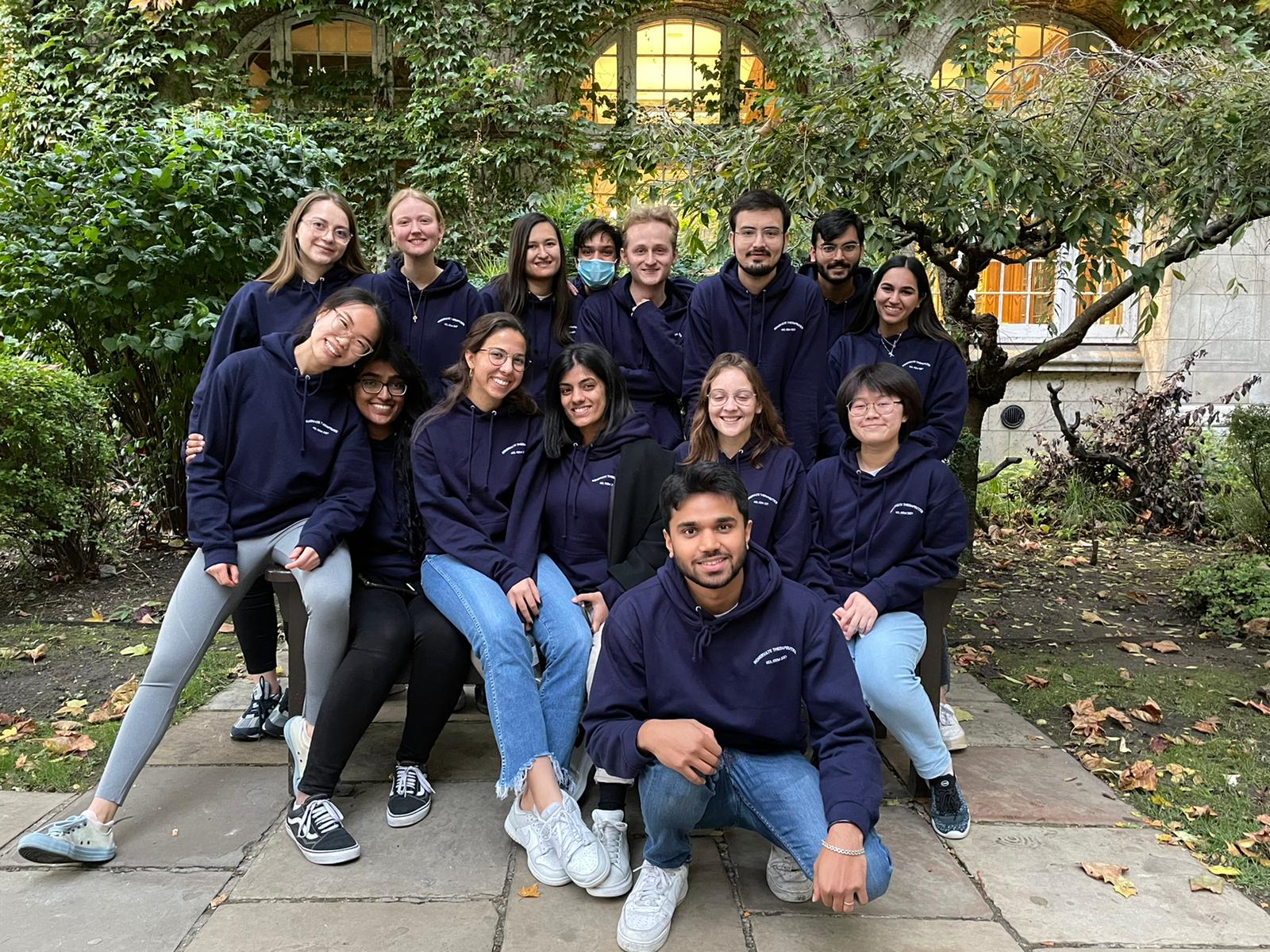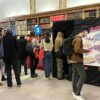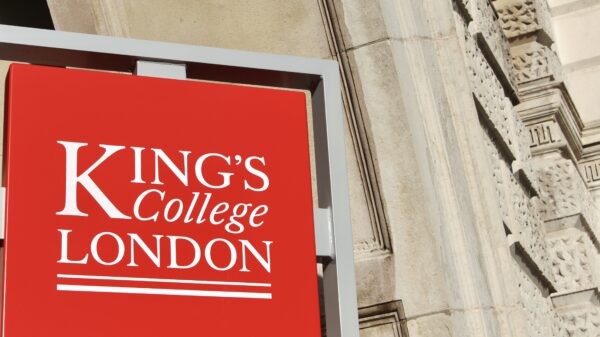News Editor Samuel Teale Chadwick interviews a group of King’s students whose concept to treat spinal cord injury treatments won them a gold medal at the annual iGEM competition
Renervate Therapeutics, a multi-disciplinary team of nineteen KCL students, has thanked their supporters and mentors after triumphing yet again at the International Genetically Engineered Medicine’s (iGEM) Foundation’s annual competition. Following on from KCL’s success last year, the students developed further a potential treatment for spinal cord injury with a 3D bioprinted scaffold, coated in a bioadhesive mussel foot protein, to allow the nerves to regrow.
As the first stage was back in 2020, the initial design was done “completely in silico”, and on a computer, team leader Alya Masoud Abdelhafid said. For the second and final phase in 2021, her and co-team leader Luke Bateman “wanted to recruit a team to continue the success of iGEM 2020, KCL’s first gold medal, and do Renervate justice”. This they did. In November last year, the Renervate Therapeutics team was not only nominated in five categories, but won Special Prize for Best Presentation and was awarded KCL’s second consecutive Gold award in the global event, the largest of its kind in the world.
Interviewing three members of both award-winning iGEM teams offered fascinating and candid insights into the process of their progress. Faced with incredible complexity and inevitable challenges, Renervate Therapeutics was collaborative and creative. The public secret of their success is a winning combination of nous, determination, and humility.
After exams, the Renervate Therapeutics team prepared in earnest to convene in person. Whilst the summer warmth invited nearly everyone to venture outside once more, Harsh Bumia returned to the Hodgkin Building at Guy’s Campus to work on producing and purifying the mussel foot protein. He was mostly on his own as ongoing Covid-19 precautions meant laboratory capacity was restricted to two or three. “Covid hit when I was in my second year, so I had done a decent amount of lab work. But the gap was still there, especially when you’re out of it for a year and a half, it does make a difference. But we had a great PI, Dr Anatoliy Markiv, who was very supportive and got everyone up to scratch. It was quite fun in a way. The communication of different ideas was more natural and flowed better. Whereas in lockdown for weeks on end with ten hour days online, Zoom fatigue is a real thing.”
As lockdown eased through 2021, the team could gradually communicate and motivate each other more. They pitched to investors, conducted interviews with academics and collaborated with international iGEM teams. Because KCL initially kept the ‘rule of 6’, the subgroups Spinal Cord Injury, Mussel Foot Protein, and Bioprinting, had to meet separately in different lecture theatres before convening via Zoom at the end of the day.
Luke said that software like Zoom and Slack “makes it so easy to communicate and organise. So even in person you rely heavily on these softwares. Working in person you can feel the dynamic better and there’s a lot more spirit. You can feel the pressure in the room of people working around you, and it drives you to work harder. But I think our results over the last two years have shown that the pandemic hasn’t impacted us heavily at all.”
Having continued their legacy, they are keen to give credit to the KCL’s previous iGEM team in 2020. “Without them we wouldn’t be here” Harsh said. “The tremendous success we did get from the team’s hard work did start to foster a distinct synthetic biology community here at King’s.”

A diagram of the proposed treatment at the centre of a project which combines 3D bioprinting, recombinant protein technology, and synthetic biology.
Alya said, “iGEM is an incredible institution that allows you to really grow into yourself as an academic researcher and as a person. You’re applying everything you’ve learnt, and often everything you’ve learnt is what you’ve learnt in two months, and you’re presenting it to academics who are at the top of their fields. It’s this one opportunity that you will never find and I honestly recommend it to everyone. It takes you to another world of science. The beauty of science is to see so many passionate people developing these projects out of nothing.”
My next question was about what they learnt during the process, and how they went about creatively solving the barriers they encountered. Renervate Therapeutics also “had to troubleshoot” unforeseen problems during the development of their concept.
Alya said, “Sometimes you’re dealing with a very targeted problem but you always have to look at the bigger picture. If you take a step back and talk to your team, you realise it’s actually easier to tackle. As part of our proof of concept, we thought printing our scaffold was going to be super simple.”
It wasn’t at first: the scaffold failed to print. “The file would either be too complicated, or it would melt. We had to realise that we only have so much knowledge. We had to reach out to Professor Trevor Coward who, alongside other academics, were also able to advise a couple of tweaks and changes. We had to completely redesign our scaffold. Rather than having these complex shapes, we simplified our topography and typography, which are architectures, to allow for regeneration. To finally get it printed, it took a long time.”
Although I was fairly sure I already knew the answer, I asked what it was like the day the scaffold was printed: a surprise or a relief? “A complete relief. We’d worked a whole year to design and model this in 2020 and all we wanted was to get it printed in 2021. When it was finally printed, it was a good day.”
Luke said: “Despite our understanding, spinal cord injuries are really complicated. There’s always surprises in any research you do and you have to be very prepared for these surprises. From my experience, it was very difficult to be surprised when things go wrong because you always anticipate it.”
The team had to keep their focus on the targets of the competition. The team thanks the “great support” of Dr Anatoliy Markiv and Dr Alison Snape who “really helped to shape and direct our project in a way that we can conduct successful research as scientists but at the same time hit the competition criteria.”
A key part of iGEM is to develop a proof of concept. Harsh said, “as students, we, in no way, will be able to develop, in nine months at least, a 3D printed scaffold that can be implanted into a human, to result in successful nerve regeneration. That was a problem for us. To move past that, we demonstrated that we can improve the conditions in which our proteins and enzymes can be produced.”
Luke said of the team’s supervisors “Having their perspective the whole way through the project gave such great insights. And there are things we would have missed if we didn’t have them there. More on the funny side, when me and Alya had been up for hours and hadn’t slept, Anatoliy would make sure we were sleeping and drinking water and just looking after us in that sense.”
He revealed that the competition tested him as a team leader. “Challenges get thrown at you every day. I had to recognise I wasn’t as good at some of these things, but instead of taking it in a negative way, switching it around and thinking, ‘that gives me a chance to improve in these areas. Generally it’s easy to hide from things which challenge you because you don’t want to lose that sense of security with the thing you think you’re good at.” Luke took over the duty of coding for the Wiki from Abigail, last year’s co-leader, “to set up the foundations so the team could add all of the amazing stuff that we did onto the website. I did a lot of coding in 2020 but the foundation wasn’t as solid as I thought it was, so I had to do my own work behind the scenes to scratch up on these coding languages.”
Alya said she learnt the strength of working in a team. “Often you’re kind of isolated in a lab. Doing my dissertation at the moment, it’s me, myself, and my cells. But with iGEM you have all these people and you can learn to work together to support each other and tackle one problem that you’re all invested into. Knowing you have that support and how to effectively communicate, delegate and work so that you’re all successful was a really big milestone for me over the summer.”
Alya and Luke stress that the work is multidisciplinary. For the next iGEM team, they welcome applications from students from any academic background. Alya was “originally a nutrition student who came into my degree thinking I would only leave as an accredited nutritionist. I don’t have many associations in my degree with synthetic biology or neuroscience which are completely different fields. By participating in iGEM for two years, I look forward to graduating with an abundance of knowledge in regenerative medicine and synthetic biology, a wide experience in completing independent research and skills for networking with academics. This has meant so much to my personal growth as a student researcher and I am so grateful for the opportunity.”
Luke said that in his first year of his work with ‘Renervate’, his work followed a more chemistry-based theme, which was very different from his usual studies into biology. “At first I was very interested in the mussel-adhesive chemistry [the natural glue from a mussel foot protein would allow the scaffold to stick to the spinal cord]. But I would say personally the mussel-adhesive work hasn’t stuck, pun intended. Reading all these papers especially when you’re completely new to the field was quite overwhelming, but it just goes to show you can learn anything if you set your mind to it.” With regards to synthetic biology as a whole, he said “I’d read into these really crazy projects that were happening around the world, including genetically modified mosquitoes to help prevent the spread of mosquito-borne diseases, and how you can use genetic engineering to effectively solve any congenital disease or disorder. That fascination has stuck.”

Harsh Bumia in the lab
I also asked them about advice for aspiring scientific researchers who may be just beginning their studies.
Alya said “The main thing I experienced is that you really have to look for opportunities. Don’t think that you aren’t suitable for an opportunity: you won’t know until you apply and are told ‘actually, this might not be for you’. For freshers, make the most out of your time to experiment and take on opportunities. Don’t think ‘oh these people are older than me and better than me and they’ll get into the iGEM team’. There’s no such thing as ‘I don’t know enough’ because you’re always able to learn on the job. A lot of facilities are accommodating of that, and they like people who showcase a desire to learn. So I really think, just take the opportunity.”
Luke said, “Take your time to explore these things and don’t just take your degree for what it is. With so many things happening, it can start to feel like you’re missing out, but that shouldn’t be the case at all. For undergrads there seems to be a rush to figure out your career, and the uni pushes that as well. But there’s no need to rush, you’ve got your whole life to figure out what you want to do. Just do what you enjoy and that will probably get you somewhere, in a good place, that’s what I’d say.”
He added, “Join an iGEM team if your uni has one. I don’t think there’s any other experience I’ve seen that even matches what iGEM can teach you. In comparison to internships, it could be your only chance to join a team of students doing really serious research that you don’t really get to do until your third year. As a first and second year, it was really amazing to be doing that so early on. There’s so much happening in synthetic biology especially in the last decade. Now’s the time to get involved.”
The team hosted a Biologix competition, to encourage high school students’ interest in synthetic biology. Both this and the Biotechnology and Synthetic Biology Society here at KCL aim to open up access to this growing area of science.

Renervate Therapeutics at Guy’s Campus in October 2021
This outreach element is important because, as Harsh pointed out, finding opportunities is easier said than done. “It’s all very well to say ‘find opportunities’. But that comes from a privileged position. For some students going out and finding opportunities is a difficult thing. Being at the next stage of my career, my main advice to undergraduates is to try things outside your research interests – you might find interests you might not have known you had.” He went from wanting to work on rare genetic diseases to now, in a Master’s programme, working on paediatric cancers. “My main piece of advice is to email people in your faculty, perhaps just to visit and shadow for a day. Even if you’re not doing the work, it’s an invaluable experience to gain knowledge of a particular technique. That goes a big way. Especially because of Covid, there is a big gap in the lab experience STEM and bioscience undergrads have. And reach out to the scientific community. Most researchers you contact are happy to talk to you, because I think it’s just a great feeling when someone reaches out to you about their work.”
The KCL team for iGEM 2022 is currently recruiting for a “completely new project”, Alya said. She and Luke are looking forward to working with the 2022 team as Instructors, and are excited to see how KCL’s next iGEM team continue their legacy in the competition. “It has to be in synthetic biology, and if they want to take inspiration from Renervate Therapeutics they’re more than welcome. They’re able to go above and beyond and decide what they want to do, whether that be in therapeutics, diagnostics, or the different tracks of iGEM.”
“We’re looking for passionate and motivated students. For an iGEM team it’s important that you are able to work effectively in a team, to learn new skills on the job, and go outside your comfort zone rather than just being someone very isolated to their discipline. You have to be ready to do everything and put your heart into it.”
In the introduction event for iGEM 2022, Luke, co-leader of the iGEM 2021 team, listed a variety of global problems inviting new and innovative solutions. Higher life expectancy brings a higher number of non-clinical diseases. In addition to the “ever present threat from infectious diseases”, there is biodiversity loss and species extinction. Pollution from plastics or fossil fuels contributes to climate change, as does fast fashion and consumerism. “It is essential that we begin to think outside the box and use our ingenuity and creativity to find solutions to these problems, and these solutions are being pioneered by synthetic biology.”
Harsh said, “It’s very rare that you work on a research project that’s yours, especially at this stage. Typically you’ll work under a lab or a PI and you’re usually doing their research, or you have your own project but it’s based on their research. Whereas this is completely novel as you’re doing something that you’ve created, and I think that’s amazing.”
Applications for this year’s iGEM team are open until 28th January. The application form alongside more information is linked here or at https://linktr.ee/kcl_igem.
















